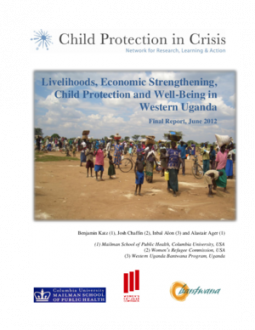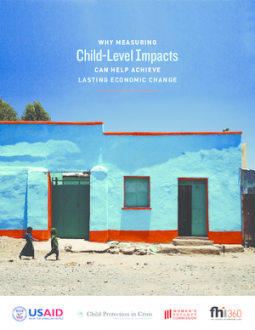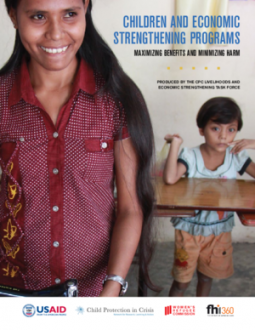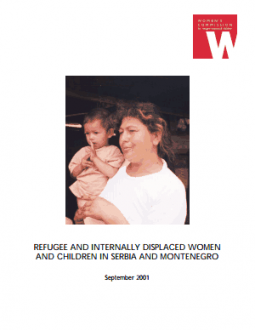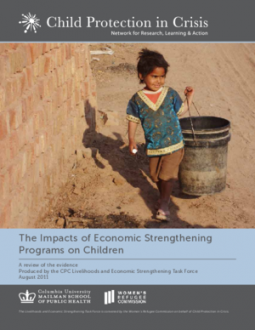
The Impacts of Economic Strengthening Programs on Children: A Review of the Evidence
PublishedEconomic strengthening approaches (microcredit, cash transfers, skills training, etc.) are increasingly applied in crisis and post-crisis contexts. These programs are aimed at achieving a wide variety of socio-economic goals, which may or may not explicitly include goals for children’s protection and well-being. Programs are implemented by a variety of actors from various sectors such as early recovery, child protection, health, nutrition, gender-based violence, etc., on the assumption that greater household wealth can lead to better outcomes in their category of focus (HIV, psychosocial, etc.).
The theme of this study emerges from a poll of practitioners, donors, and academics taken at a 2008 Child Protection in Crisis (CPC) network meeting on livelihoods/economic strengthening and child protection in Kampala, Uganda, which found that documenting the impact of interventions was the group’s first priority for research


